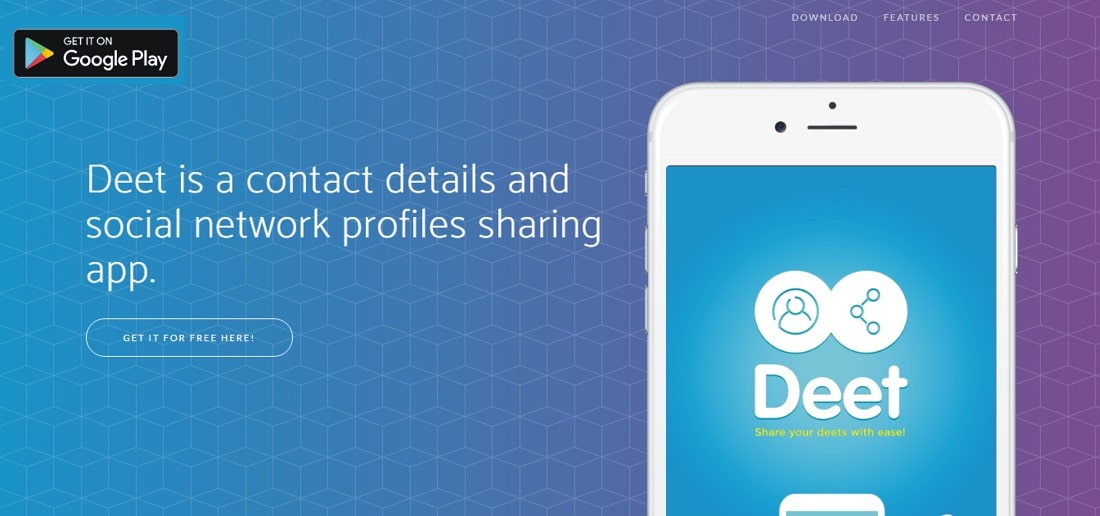Feeling there was a need to save time when exchanging contact details, Ernest launched Deet in January 2017.
In addition to time-saving, Deet also makes sharing of contact details easier and faster, since physical and even social media contacts could be shared at a go via QR codes.
According to Ernest, Deet can also be employed as a virtual business card. The contact details collected by the app are stored in an organised directory as created by the user.
Users just need to scan the QR codes, and their contact details ( such as email, phone number, website and links to Facebook, Twitter, Instagram, etc. profiles) will be automatically saved in the app’s directories. Users can also create as many profiles as possible, be it personal, business or social.
What’s more
Interestingly, Deet requires no internet access for usage. Whether this is a marketing strategy or just a unique attribute only time will tell.
Ernest is confident that his app will “save trees and discourage deforestation in Nigeria”. This is to buttress his view about adopting Deet as an alternative to conventional paper business cards. But when it comes to a nation as stern as Nigeria, it may take more than a mobile app to convince all parties involved against the usage of paper.
Asides English, Deet is also available in Spanish, Portuguese, Russian & Chinese. You can try it out by downloading from the Google Play Store. Who knows, you just might be saving a tree in the process.
Discover new startups every weekday by 9am (WAT) | Pitch your startup here.






